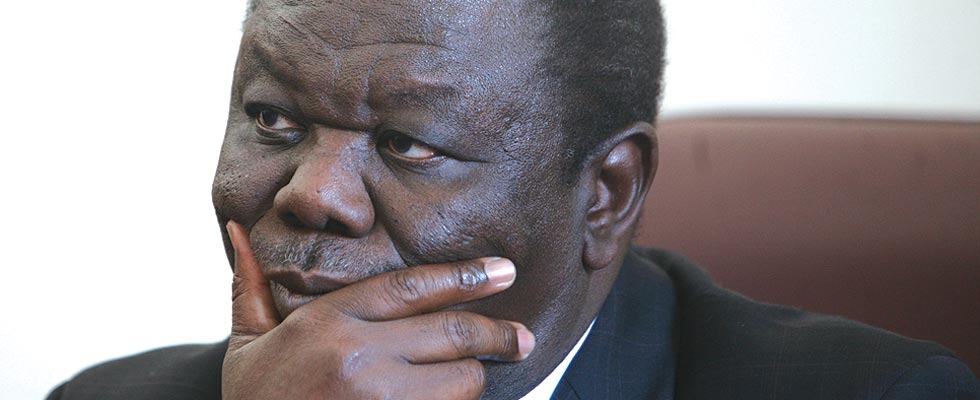
OUTGOING Prime Minister Morgan Tsvangirai yesterday filed a notice of appeal with the Supreme Court against the Electoral Court ruling that it had no jurisdiction to hear his application compelling the Zimbabwe Electoral Commission to release voting material used in the July 31 elections.
MOSES MATENGA
In his notice, Tsvangirai argues the court also erred in seeking the Attorney-General to arrest his lawyers.
Early this month, Tsvangirai approached the Electoral Court seeking an order to access voting material used in the elections as he wanted to use it in lodging his presidential election petition challenging President Robert Mugabe’s re-election.
“The court also erred in holding that it had no jurisdiction to entertain the matter. The court also misdirected itself in fact and thereafter acted on the wrong premise that the alleged contemptuous material had been filed in the Electoral Court, when, in fact, the election petition relating to the election of the President had been filed in the Constitutional Court,” said Tsvangirai through his lawyer Advocate Lewis Uriri.
“A fortiori (For that strong reason), the Constitutional Court, before which the material complained of was filed, drew a distinction between the legal practitioners (who did not share in the opinion expressed) and their client.
“The court a quo (which heard the matter) erred in factin finding that the counsel and the legal practitioners appearing before the same had filed the papers in the Constitutional Court, which papers were filed by a different firm of practitioners.”
“To that extent that the judgment of the court a quo can be read to relate to legal practitioners who filed the petition in the Constitutional Court but were themselves not before the court a quo, the court a quo erred in making an adverse finding against the same without affording them an opportunity to be heard.”
- Chamisa under fire over US$120K donation
- Mavhunga puts DeMbare into Chibuku quarterfinals
- Pension funds bet on Cabora Bassa oilfields
- Councils defy govt fire tender directive
Keep Reading
Tsvangirai also says the court erred in failing to distinguish a litigant from his counsel and legal practitioners who, as the court a quo recorded, did not share the opinion expressed.
“The court a quo erred in any event not finding that a legal practitioner is duty bound by law and his oath of office to present his client’s case without fear or favour regardless of his own personal views on the matter, and that the appellant’s legal practitioners were thus giving effect to their oath of office.
“For the stronger reason, to that extent that there is nothing on record to show that the appellant’s legal practitioners acted outside the legal professional privilege in the conduct of litigation, the order of the court a quo is a breach of their right in terms of section 64 of the Constitution of Zimbabwe to choose and carry on their profession as legal practitioners.”
Tsvangirai said the court erred in directing that the matter be referred to the Prosecuting Authority.







